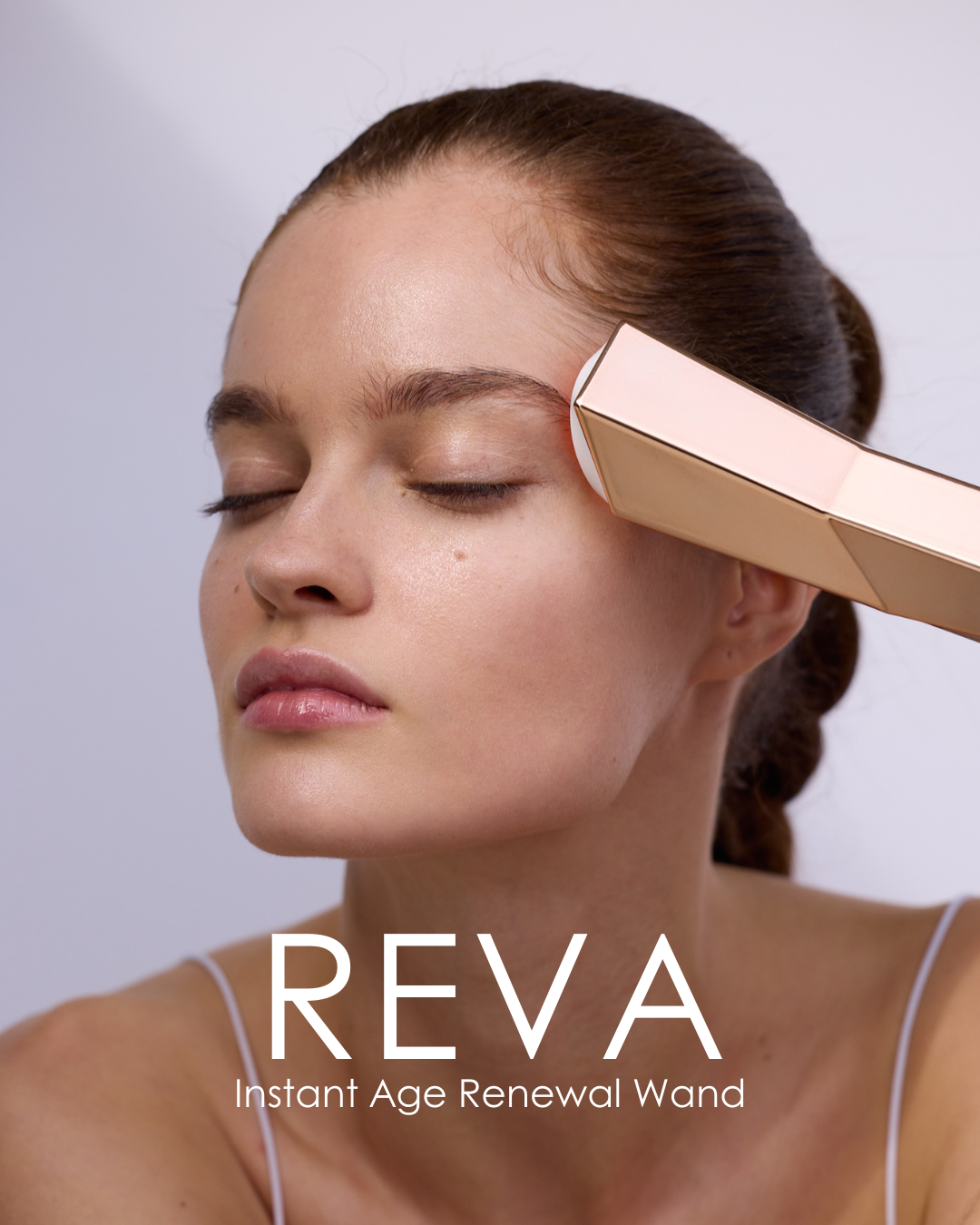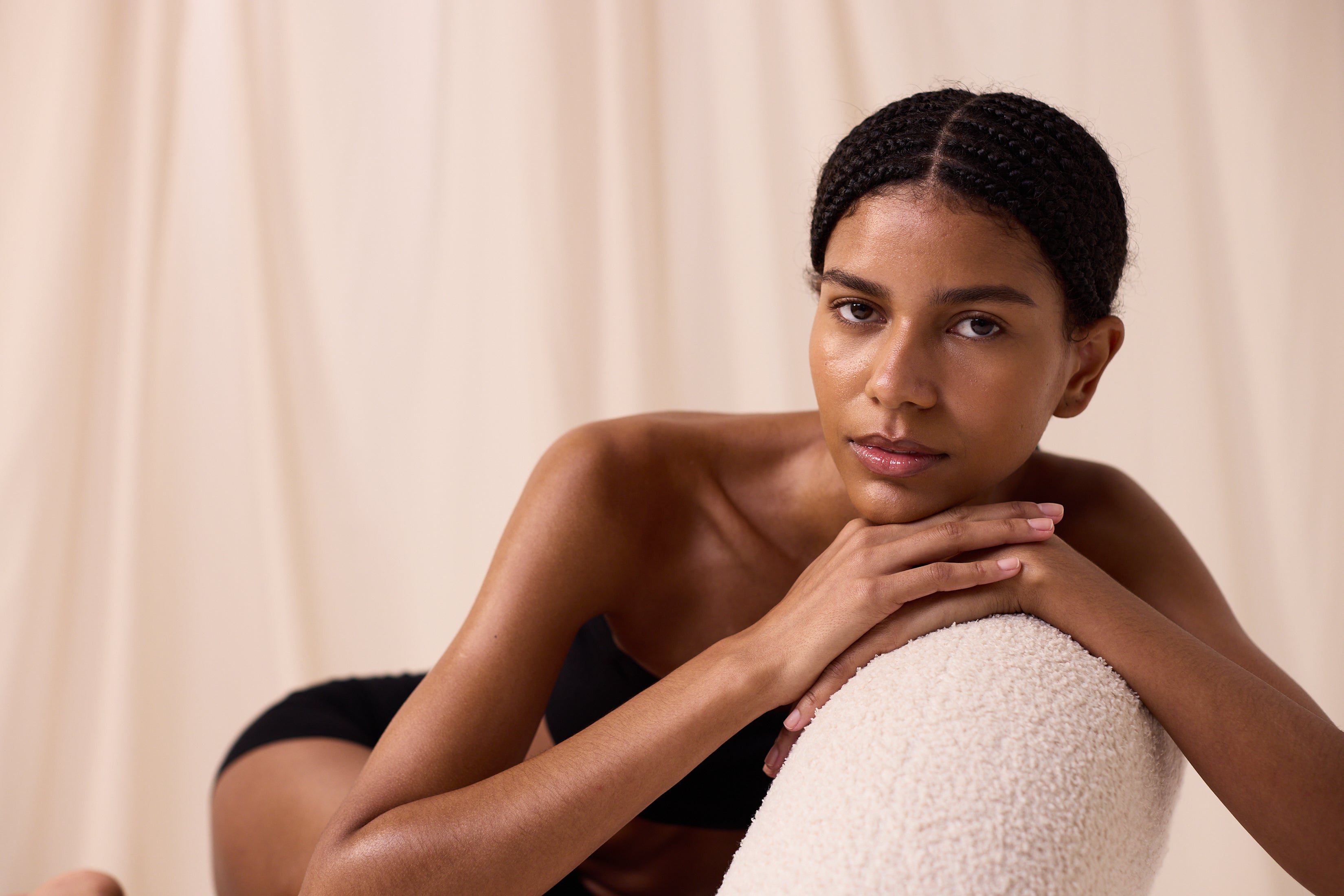
The Most Trending Anti-Aging Treatment of 2024
IN THIS ARTICLE:
- 01 The Rise Of Beauty Tech Movement
- 02 Why is the Red Light Therapy Mask So Popular?
- 03 What Does Red Light Therapy Actually Do?
- 04 Does Red Light Therapy Work?
- 05 What are the Main Red Light Therapy Benefits?
- 06 What are the Different Types of LED Light Therapy Devices?
- 07 The Takeaway: Red Light Therapy: Fad or Fab?
5-minute read
The claims surrounding red light therapy are plentiful, is there really a single technology that can treat everything from wrinkles and acne to muscle soreness and even promote better wound healing?
It certainly sounds too good to be true, so let’s dive into the science behind this trending treatment to see if viral can sometimes mean effective too.
The Rise Of Beauty Tech Movement
Beauty tech is the integration of cutting-edge technology and personal care. At the forefront are portable, at-home devices that bring once-in-clinic treatments to the masses. This democratization of beauty technology is not only easier on our pocket but offers a more practical approach to skincare, where more often than not, consistency is key to achieving lasting results.
Red light therapy devices are at the forefront of this movement, and some argue for good reason. But when it comes to beauty trends we must always follow the science behind any broad and bold claims to ensure we are not being duped by yet another viral moment that lacked any credibility - chomping down entire cloves of garlic for acne? (facepalm)
Why is the Red Light Therapy Mask So Popular?
The red light therapy has fast become the it-girl beauty gadget of 2024, and the mask in particular has gained traction due to its ability to reverse signs of aging on the whole face.
What Does Red Light Therapy Actually Do?
Red light therapy uses specific light wavelengths to energize the skin cells causing changes in the cellular matrix. Red light exists on the visible spectrum 600-700nm in depth, allowing light to penetrate about 6mm into the skin. This triggers cellular activity resulting in various benefits such as the production of key proteins such as collagen, hyaluronic acid, and elastin, eliminating acne and inflammation, alleviating muscle pain and soreness and even boosting our mood.
Also known as photobiomodulation or low-level light therapy (LLLT), it is essentially changing cells with light. Other wavelengths include infrared light therapy 800-900nm penetrates the skin at a greater depth even reaching tissue, joints, muscle, and bone so it is a very popular treatment for pain management and skin rejuvenation. Blue light therapy has a shorter wavelength - typically around 460nm so it is a powerful treatment for acne as the blue light supports the formation of reactive oxygen species that effectively destroy acne-causing bacteria.
Does Red Light Therapy Work?
Although red light therapy has more recently been co-opted by the beauty industry, its roots are firmly based in science, and light therapy has been used in therapeutic medicine for decades. It has more recently been established that these cellular changes could produce aesthetic benefits also.
In the 1960s, Hungarian researcher Endre Mester discovered that low-level laser light therapy causes damaged cells to heal faster. This discovery has since been the subject of hundreds of studies all reaching the same verdict: LLLT enhances cell rejuvenation and triggers the body's natural healing process
For example, a 2006 study found that red and infrared light therapy can increase cell rejuvenation by up to 200%, essentially causing the cell to act as a younger cell would. This explains the powerful anti-aging benefits of red light therapy in smoothing wrinkles and firming sagging skin.
Another 2020 study confirmed that red light therapy boosts fibroblasts a type of cell responsible for making new collagen.
Blue light therapy has also been shown to have an extensive impact on inflamed lesions, in cases of mild to moderate acne, in over 4 weeks of treatments.
What are the Main Red Light Therapy Benefits?
-
Reduced inflammation and pain relief
-
Faster wound healing and tissue repair
-
Skin rejuvenation
-
Increased blood flow
-
Enhanced circulation
-
Improved muscle recovery and performance
-
Hair growth stimulation
-
May improve brain function
-
May aid in weight loss
What are the Different Types of LED Light Therapy Devices?
Red Light Mask - a wearable plastic or silicone facemask with built-in LEDs to treat the face. Perfect for anti-aging, acne or hyperpigmentation where the face and neck are the primary concern.
Red Light Therapy Panel - can range in size and power output but typically LEDs are arranged in a rectangle panel allowing you to treat areas by standing in front of or near the panel.
Handheld Device - a smaller number of LEDs typically but with a stronger power output to target isolated areas or blemishes. Can easily be used on arms, neck, and legs. A great option for those preferring a contact-free treatment.
Full Body Device - typically in a curve-like design, can easily sit under or place larger treatment areas such as the legs, chest, or back underneath the design. Generally more precise and even coverage than a panel.
LumaLux Dome | Face & Body LED Light Therapy Device
8 wavelength full body LED light therapy device for skin rejuvenation, fine lines, acne, muscle recovery and mood boost
The Takeaway: Red Light Therapy: Fad or Fab?
Red light therapy has certainly established itself as more than a passing fad and its emergence into the at-home beauty tech movement marks an exciting time for skincare and wellness buffs. A formerly in-clinic exclusive has firmly made its way into our daily skincare routines.
Red light therapy causes a gradual and overall improvement in the skin, and the consistency of treatments is integral to achieving results. Starting to use LED as early as your 20’s and 30’s is a skin investment that will pay for itself 10 fold in terms of avoiding, or at least delaying expensive anti-aging treatments such as anti-wrinkle injections, dermal fillers, and laser treatments.

written by Sophie Flair

















Leave a comment
This site is protected by hCaptcha and the hCaptcha Privacy Policy and Terms of Service apply.